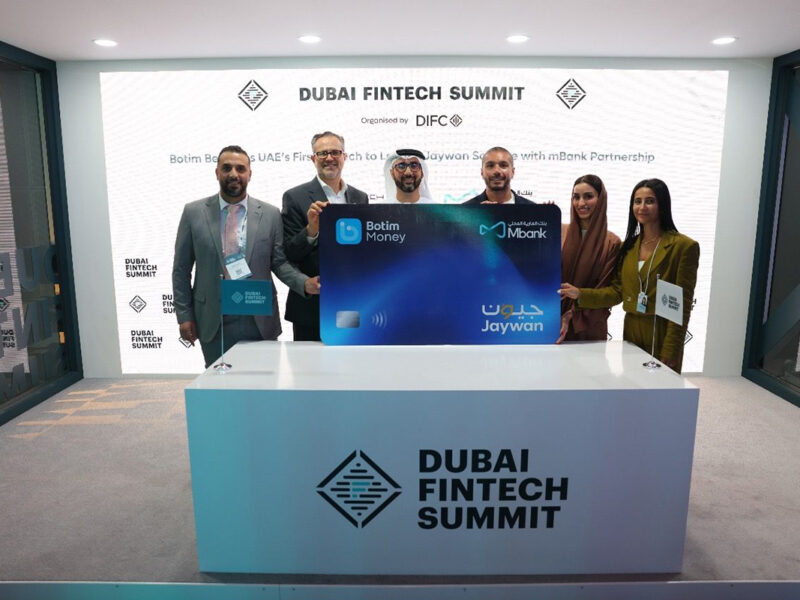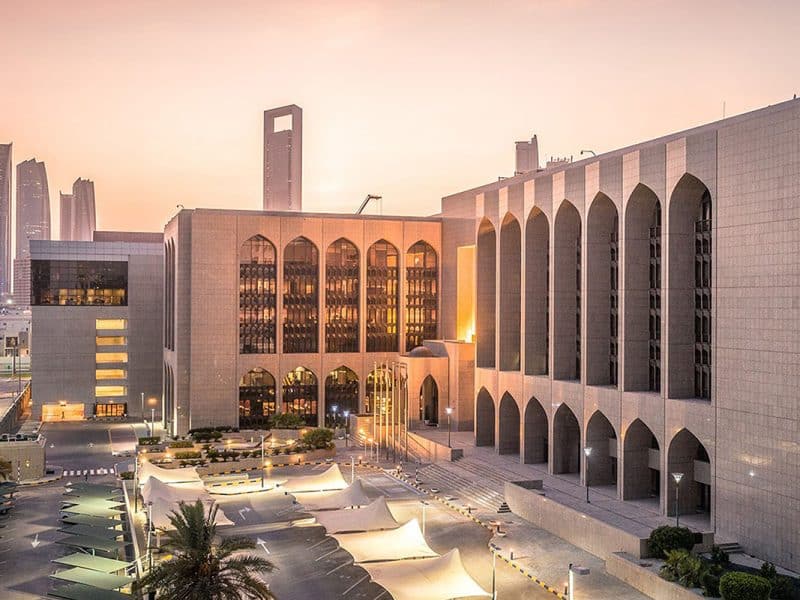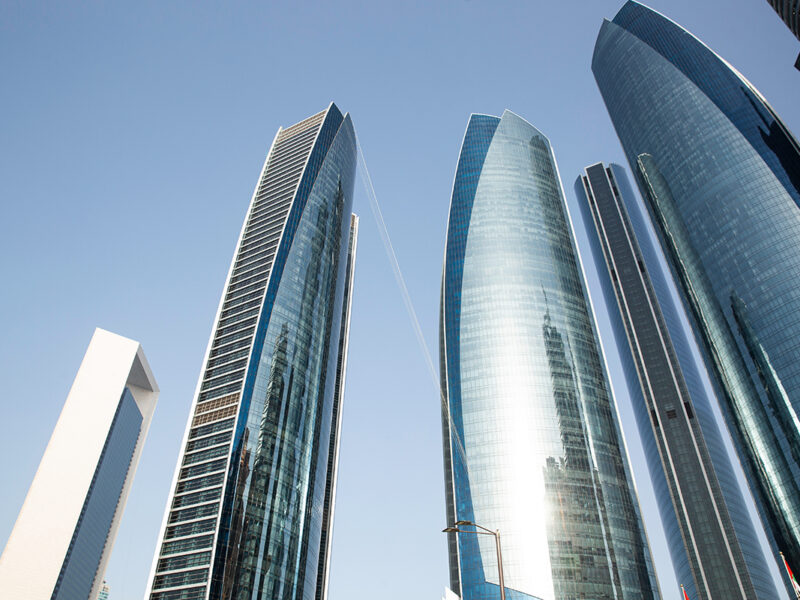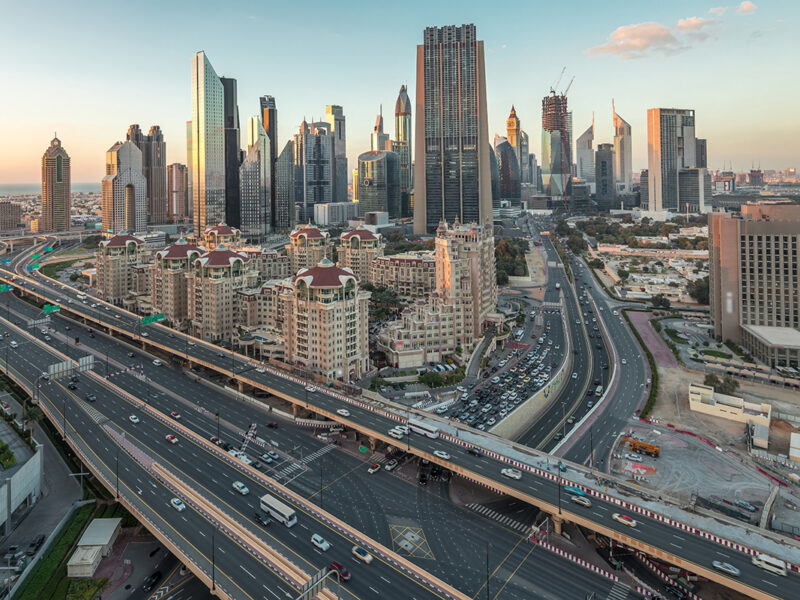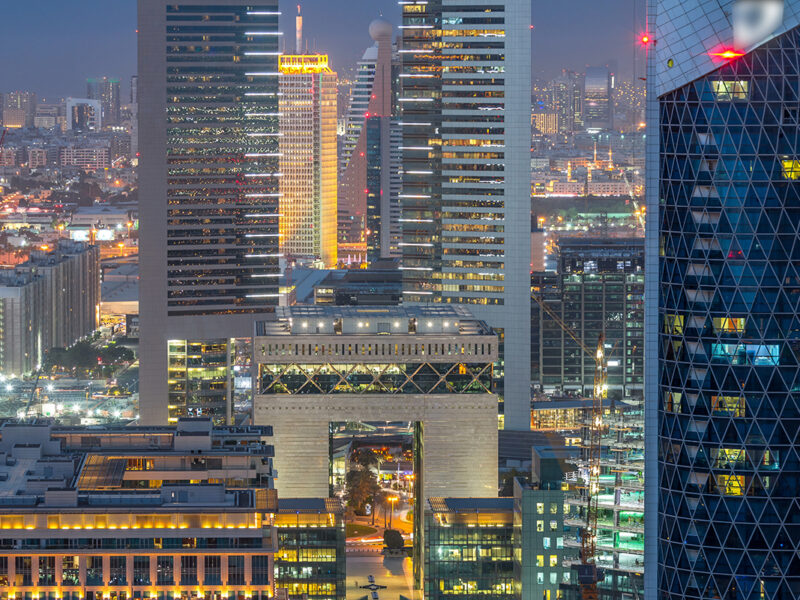His Highness Sheikh Tariq Bin Faisal Al Qassimi, chairman of the Emirates Investment Group, talks to Claire Ferris-Lay about why real estate is still his favourite investment.
Dubai’s glitz and glamour and Abu Dhabi’s multi-million-dollar football deals have always ensured that the international press provides many column inches to both. But Sharjah, the UAE’s third-largest emirate, is often left lagging behind.
One gets the impression that Sharjah’s residents prefer the quiet life. Indeed, it takes several phone calls and emails to get an interview slot with Sheikh Tariq Bin Faisal Al Qassimi, chairman of the Emirates Investment Group (EIG), a Sharjah-based private sector investment group. In the process, CEO Middle East wonders if he is publicity shy.
It soon becomes clear, from a selection of clippings sent to CEO Middle East ahead of the interview, that he is not. In almost every press release Sheikh Tariq, a tall, striking man, is photographed shaking hands with some top international dignitary, be it the Bulgarian prime minister, Sergey Stanishev, the Yemeni prime minister, His Excellency Dr. Ali Mohamed Mujawar, or most recently, Asif Ali Zardari, the president of Pakistan.
Sheikh Tariq’s meeting with Zardari in November last year was shortly followed by news, in April, that EIG would be acquiring farmland in Pakistan in a bid to secure imports of basic food items for the Gulf. At the time, the story was big news. Across the Arab world, an increasing number of investment companies are recognising the need to secure food supplies.
In August, Saudi Arabia announced plans to set up an investment fund to buy agricultural land overseas, while Abu Dhabi-based Al Qudra Holding has also announced its intention to acquire four million hectares of land in the Middle East, East Africa and the Far East.
In April, the federal minister for investment in Pakistan, Waqar Ahmed Khan, announced that Pakistan was offering one million acres of farmland for sale or long-term investment. Sheikh Tariq tells CEO Middle East that EIG is on the cusp of signing a letter of intent with an Australian firm to pursue opportunities for cattle farming in Pakistan, while the group is also interested in buying land to grow fruit in the South Asian country.
“We are a growing population in the Arab world,” he says of the motive behind the deal. “The majority, about 60 percent are under the age of 21, so the growth in consumption is only going to increase over the next couple of years. There are certain flavours and types of food that are very receptive [in this region] and we believe there is a huge potential in that.”
While he indicates that the majority of the food will be sold in the Gulf, he is also keen to point out that as a business, it is also a highly lucrative deal for EIG. “The yields on agriculture have increased substantially. Agricultural land has not increased the same as residential and commercial property, so you can make some money,” he says.
Pakistanpromising
He adds that buying agricultural land abroad is a two-way deal for both parties involved. “One, Pakistan is getting foreign direct investment, two, we are coming in with technology partners who can provide technology in agriculture and three, you are creating jobs and job opportunities in the country. From all three sides there’s a lot of value added.”
But not all of EIG’s investments are in Pakistan; like many other Gulf investment companies, is it impossible to accuse EIG of putting all of its eggs in one basket. Established in 2003, the firm has investments in real estate, hospitality and aviation as well as banking and finance.
Sheikh Tariq describes the firm as more of a venture capital business, typically investing in start-ups and not averse to high risk countries. “We are not only looking at high risk countries, part of [our] business is really venture capital and most of our businesses are start-ups [such as our] real estate firm, Enshaa or our aviation company, Empire Aviation.
“We invest initial capital to start those businesses up and obviously when you are in venture capital there is a high ratio of failures in start-ups. So we have really been taking some levels of risk and investing in start-ups. So far we have been successful in making those start-ups successful businesses.”He adds that as a UAE-based firm, EIG is often welcomed into emerging countries with welcome arms, following already significant contributions of foreign direct investment (FDI) from the UAE to those countries.
“Diversification is definitely the key to our strategy. We usually don’t go to the countries unless we are welcomed by the political and economic situation. The UAE has enjoyed an excellent reputation all over the world and especially in emerging markets like Pakistan and India, Egypt, Sudan – it has been very supportive of those countries through its aid programmes and economic corporation programmes so we are welcomed with open arms.”
In addition to acquiring farmland in Pakistan, EIG also partly owns Emirates Global Investment Bank, a Pakistan-based consumer bank. This year Sheikh Tariq plans to double the number of branches to 100.
He says that, as one of the very few Islamic banking institutions in a country of 180 million Muslims, he expects the increased number of branches to be well-received. “Our target is that we’ll have 100 branches in Pakistan, go public and expand the global aspect of the banks,” he says. “We are also [looking at] emerging markets like Pakistan, CIS countries, countries like Indonesia, Malaysia and so on, that have [potential].”
Stimulus plan needed
Typical the conversation deviates to discuss regional banks and the economic policies of the UAE – a subject Sheikh Tariq is surprisingly at ease discussing. He tells CEO Middle East, that despite Dubai’s multibillion-dollar bond issue, the UAE is still in desperate need of a stimulus package to boost liquidity.
“I think they [the UAE government] are moving fast, but I think they should have moved faster. The government is very receptive to ideas and they are in direct communications with the business world so the pulse of what the business world needs is very much reflected to that. However, I do feel that we need a stimulus plan in the UAE to get things flowing again and get more liquidity into the banking system – it is vital to the UAE’s recovery as an economy.”
Sheikh Tariq’s favourite investment, he says, is still real estate, despite the significant losses currently being made on real estate in the UAE, particularly in Dubai. EIG has a number of real estate projects in its portfolio including the Ritz-Carlton Residences in Singapore, Emirates Financial Towers in Dubai International Financial Centre and Enshaa, a UAE-based real estate firm with investments in Pakistan, Australia and the UAE. In addition EIG also has two investments in Yemen, worth a combined $500m.
“You cannot have a straight rise for eight-ten years without having a correction,” he says. “I think it’s healthy to have that correction, it’s a painful one… I think the UAE for example, I think it will benefit substantially from this. The cost of living six months ago was really reaching unbearable levels, people were not saving money, expatriates were not able to save money… no-one was happy.”Now, with the cost of living coming down, hotel rates coming down, it’s becoming a more attractive destination.”
With real estate prices falling significantly, Sheikh Tariq plans to take full advantage of the strong position the dirham is now in and is currently eyeing a number of investments in the prestigious SW1 area in London – a city he is familiar with having studied International Finance at Westminster University some years ago. “SW1 is the only address that I would look at,” he says laughing.
“I studied in London for three years and I visit London very regularly. I have seen ups and downs in the property market in London [and] I do believe that in the long term that market has a lot of value.”
Saudi’s real estate potential
He also sees a huge potential for real estate in Saudi Arabia once the long awaited mortgage laws are finalised. “It (real estate) is not the most sought-after asset class, but it has been hit so substantially… some markets are different from others.
There is huge potential in Saudi Arabia where there are about 1.6 million Saudis who need homes. “I think there is now a real demand from a social and economic point of view to open up that mortgage market in Saudi Arabia. They have regulated the market in a way where you cannot sell off-plan, you have to build first so it will filter out the market from the mediocre developers and open up the market for real developers to go in.”
Perhaps EIG’s most well-known partnership is with the Australian firm, Sunland Group, for the international rights to the Palazzo Versace, a chain of fashion branded hotels (together they are also building the D1 Tower in Dubai’s Culture Village, a sister development to Sunland’s Q1 building in Australia).
The first Versace hotel, on Australia’s Gold Coast was opened in 2000, and the second in Dubai – internationally known for its air-conditioned beach – is due to open soon.
Sheikh Tariq says he plans to expand the brand in gateway cities such as London and New York, taking full advantage of the global economic downturn and the firm’s strong balance sheet. “We have the rights to open eighteen hotels around the world so we are looking at many opportunities. A year ago with the inflation… and the demand for property, you couldn’t sell any propositions to any property owners, but now more people are more receptive to people talking and we are exploring a lot.” Maybe EIG is too busy to bother with the limelight after all.

